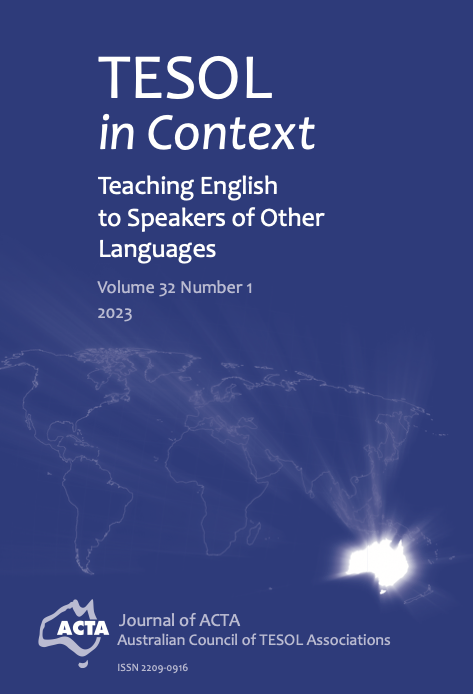Implications for Initial Teacher Education (ITE) programs in preparing mainstream teachers for culturally and linguistically diverse classrooms
DOI:
https://doi.org/10.21153/tesol2023vol32no1art1827Abstract
With a rising percentage of English as an Additional Language or Dialect (EAL/D) learners in Australian schools and recent policy changes, increasingly these students find themselves learning curriculum content in mainstream classes without appropriate language learning support. Professional standards for teachers in Australia require graduates to demonstrate knowledge of teaching strategies that are responsive to the learning strengths and needs of students from diverse linguistic, cultural, religious, and socioeconomic backgrounds, including Indigenous learners. However, teachers report being ill-prepared for teaching in culturally and linguistically diverse classrooms. It seems that Initial Teacher Education (ITE) courses may not be consistently equipping preservice teachers with the necessary knowledge, dispositions, skills, and expertise to be responsive to EAL/D learners’ needs. This study analysed video-recordings of five practising EAL/D teachers responding to questions posed by ITE students from an Australian university. Using Fairclough's (2003) Critical Discourse Analysis (CDA) and a sociocultural lens, research results offer insights into knowledge and practical implications necessary for successful EAL/D student engagement in mainstream classrooms. This timely research presents five recommendations that will inform higher education institutions when developing ITE courses for preparing preservice teachers for culturally and linguistically diverse classrooms. Insights are shared for already practising mainstream classroom teachers.
Downloads
Published
Issue
Section
License
Copyright (c) 2023 TESOL in Context

This work is licensed under a Creative Commons Attribution-ShareAlike 4.0 International License.






